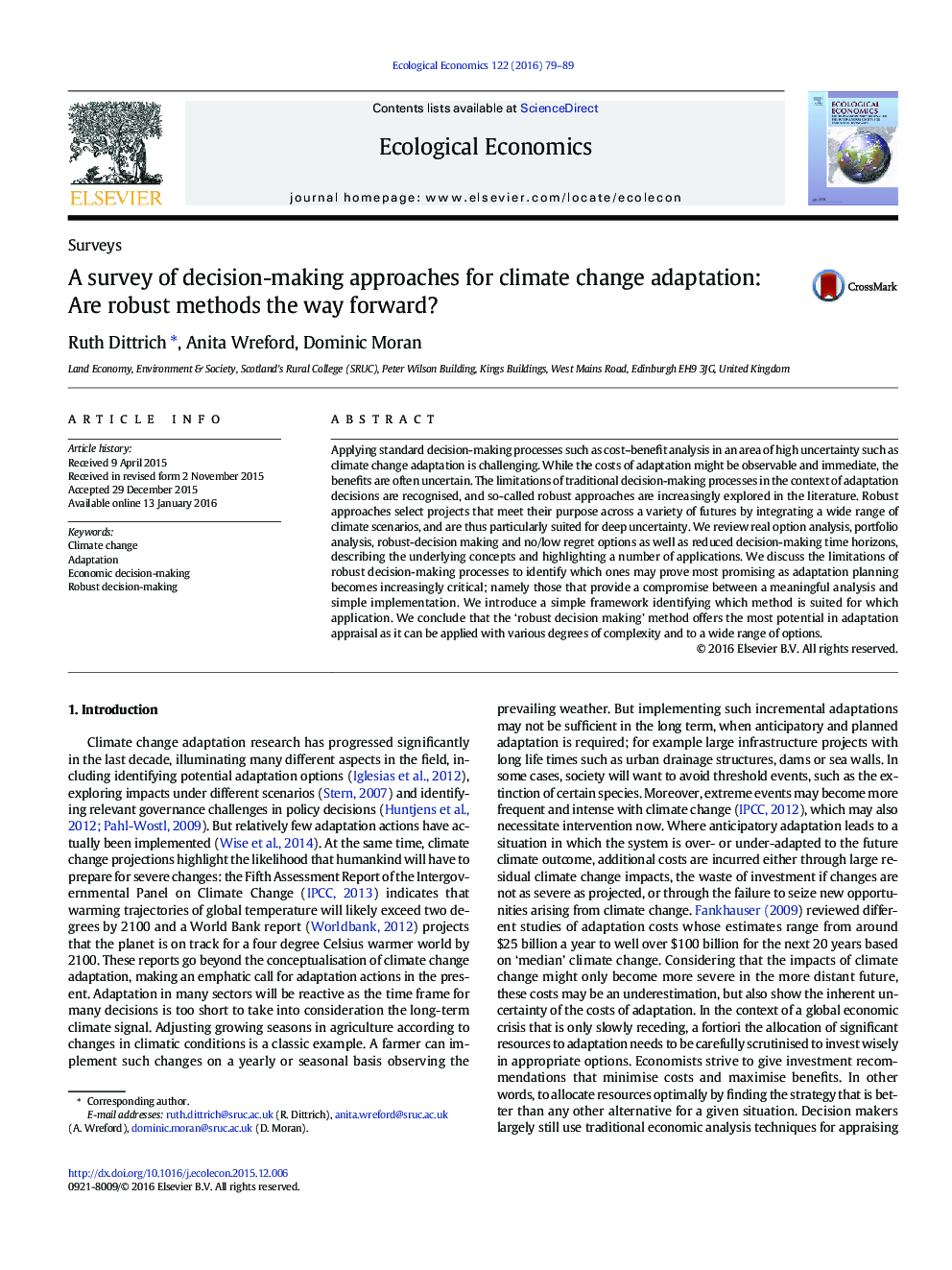| Article ID | Journal | Published Year | Pages | File Type |
|---|---|---|---|---|
| 5049126 | Ecological Economics | 2016 | 11 Pages |
Applying standard decision-making processes such as cost-benefit analysis in an area of high uncertainty such as climate change adaptation is challenging. While the costs of adaptation might be observable and immediate, the benefits are often uncertain. The limitations of traditional decision-making processes in the context of adaptation decisions are recognised, and so-called robust approaches are increasingly explored in the literature. Robust approaches select projects that meet their purpose across a variety of futures by integrating a wide range of climate scenarios, and are thus particularly suited for deep uncertainty. We review real option analysis, portfolio analysis, robust-decision making and no/low regret options as well as reduced decision-making time horizons, describing the underlying concepts and highlighting a number of applications. We discuss the limitations of robust decision-making processes to identify which ones may prove most promising as adaptation planning becomes increasingly critical; namely those that provide a compromise between a meaningful analysis and simple implementation. We introduce a simple framework identifying which method is suited for which application. We conclude that the 'robust decision making' method offers the most potential in adaptation appraisal as it can be applied with various degrees of complexity and to a wide range of options.
